The world’s cleanest bicycles travel to Australia
Country: Malaysia and Australia
From Bangi to Melbourne
Lesson learned: A bike also runs with a few missing screws
Laughed about: “Look, other Tourists! Oh, I forgot, they speak English because we are in Australia. They just live here.”
Most wonderful miracle: German Christmas at the GMI
Food we ate: Licorice, cookies, waffles, sausage, potato salad, German Christmas cake and cookies and a lot of The Tarik
Greatest challenge: Hours of cleaning
Days on the bike: 2
Kilometers cycled: 52.32
Average Kilometers per day: 26.16
Total Kilometers cycled till Melbourne: 14464.01
Total days travelled till Melbourne: 830
March 2014: By bike to Australia
We stayed with Mirjam at the GMI but took off to go back to the North of Malaysia for a few days.
Sharon, the owner of the Jitra bike shop, and Apit, who appears to know everybody around, had started a new project together with us: we wanted to help the narrow paths that lead through the rice fields grow into proper bike paths.
The paths were in good contortion but not a single sign or map showed the way. We would need routes, information boards, touristy attractions, bike hires, maps, homestays and restaurants on the side of the trail as well as advertising. The first thing to work out was the routes.
Some of the local bike club members met to cycle a 40 kilometers’ route with us. The weather was perfect as we cycled through the paddy fields, past museums and even crossed a little river on a rope ferry. We were really excited to be part of such a great project.
We spent another day with Dila and Apit in Kepala Batas, then we headed back to Bangi, Kuala Lumpur, because we had plenty of work to do before we could set off to Australia. We even got some visitors from home: Sören and Barbara travelled through Thailand, Malaysia, Singapore and Australia and stayed with us in Bangi for some days.
They brought us a big bag full of German sweets that my father had packed for me and I had to pull myself together not to eat them all right away.
Mirjam also hosted the GMI’s German Christmas party and we spent a great evening with her club’s students, cookies, sausages, potato salad, waffles and Christmas music.
Three students played Christmas songs and I felt great to finally have the opportunity to put my Christmas hat on. The students loved it and I am sure that they will enjoy their first Christmas in Germany.
Then we had to get back to work. As we wanted to bring our bikes to Australia, we had to clean them. Australia has got a very sensitive ecosystem and foreign seeds or even animals could destroy it right away. There are many pests that have been brought from other countries. Some were imported on purpose, not thinking about the consequences, others, as rats and cockroaches, sneaked into the country.
The most famous example was the Cane toad. In 1935 it was imported from South America because it was known to eat the bugs that destroy the sugar cane fields. But the farmers did not know that the highly poisonous toad was still hibernating when the bugs first came out and would not wake up until they had finished eating the entire field. So when the toad wakes up in spring, there are no bugs left, instead it attacks Geckos, frogs, snakes, other toads and small mammals. The Aga Toad is so poisonous that it can even kill crocodiles after they ate them, as it extracts a serum that the crocodile’s stomach can’t fight against.
The Australian government has already spent more than 13 Million Euros in the destruction of the toads – with small successes.
As a consequence, everybody who enters Australia is checked now. Every bit of soil, dirt, wood, animal products, meat, shells, and milk products will be checked very carefully and some things will be destroyed, others cleaned and others will be fine to bring in.
We did not want to see our belongings destroyed, so we would have to clean them. Akmal, who started a successful bike shop inside the campus of the UTM University near Kuala Lumpur, invited us to use his workshop for the cleaning. It took us two and a half days to clean every single part of our bikes. In the end we had the bikes stripped off completely, only the frame was left.
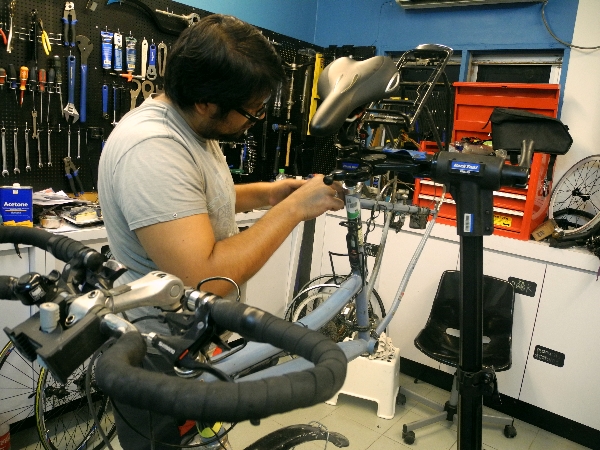
Now we finally understood how our bikes actually work and we feel confident enough to attach, repair and detach any part of them.
We cleaned with cloths, old toothbrushes, gasoline and finger nails and even put some polish on in the end. Akmal helped us to put the single parts together again and sold Roberto a used but good new rim without cracks.
“Today you will learn so much about bikes that you will want to vomit in the end”, he warned us on the first day. We did not vomit. But I dreamt of bike parts for come days.
We had a couple of screws left over but in general our bikes rolled fine and we did not mind too much. When we were finished our bikes shone like new and our self-esteem was enormous. Now we finally understood what our bike parts were all about, how they were put together and how they work.
We needed another two and a half days for tent, shoes and bags, then we started to check the inside of our bags. Could we bring our sauces? How about wooden chopsticks? Is chocolate considered a milk product? We did plenty of research and were more than happy when all the planning, cleaning and packing was finally done.
We were curious on Australia but also sad to leave Malaysia. It had been August when we first entered the country and until December, we have made quite some good friends and got used to the culture.
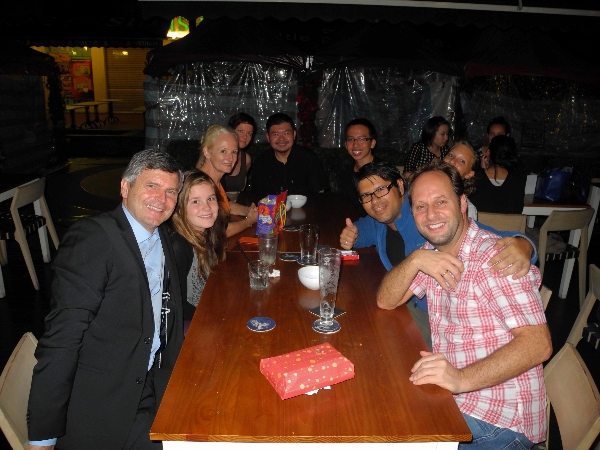
Mirjam even took us out to see the screening of the Movie “Cinema Jenin”, the second big documental produced by Marcus Vetter. After the screening we were invited to join Marcus and the Goethe Institute’s director Rolf Stehle for a beer.
On our last night in Malaysia we were all invited to Adib’s wedding, a friends of mine who had studied in Germany with Apit. The last time I had seen him was on a concert of Die Toten Hosen, one of Germany’s oldest punk rock bands.
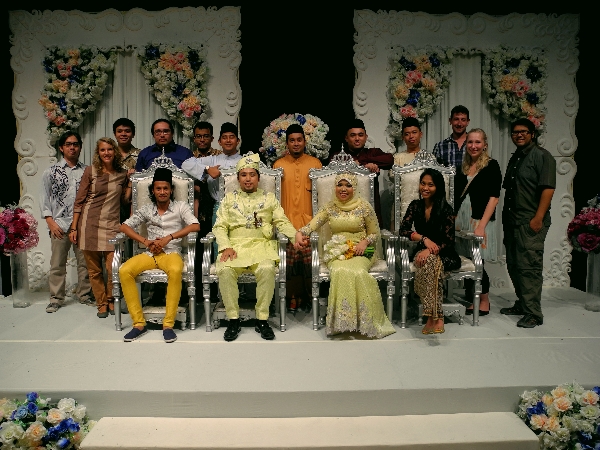
Adib’s wedding was beautiful. We were happy to see him and his friends again before we headed off to Australia.
Just in case I booked an extra 10 kilos of baggage before I made the online check in. So we could be sure that we could fit everything. Mirjam had organized us a transport to the airport and we were sad to say goodbye to her, Sören and Barbara.
Apit even came all the way to the airport to say goodbye to us. The flight was long and by the following morning we landed safe and sound in Melbourne. We picked up our bags and queued for the immigration with our immigration cards, which we had filled out honestly. My heart pumped quickly.
“Are those mountain bikes?”
„No“
“Okay. It says here that you bring milk products.”
“Yes, we bring chocolate”
“Ah, alright. How about the wooden products?”
“That’s a pair of wooden chopsticks.”
“Okay. Anything else to declare?”
“No”
“Alright. Exit number three“
And that was it. We left the airport and could not believe our luck. Everybody had warned us that the immigration was the hardest we would ever be in and that the border control would take our bikes in pieces and even check single parts with a Q-tip and destroy everything with a bit of dirt on it, but they had not even checked the soles of our shoes!
We got out of the airport and started to assemble our bikes. It took us nearly two hours, as our normal packing system had been completely changed for the flight and we did not know where to search for our parts. A nice man who worked at the airport, talked to us and explained us the easiest and bike friendliest way to get to our friend Sherlock’s apartment. Then he even showed me the way into the staff cafeteria so I could fill up our water bottles.
We got started for our 24 kilometer’s trip and the cultural shock could not have been any bigger.
Usually when we get into a new country, we cross the land border and find ourselves in a culturally rather mixed area, where we can still hear both languages, use both tenders, find both kinds of food and experience both cultures, so when we arrive in the first big town we already got a bit used to the new country. But this time everything was different. We had taken a plane and landed on a different continent with hardly any Malaysian culture, apart from the odd Malaysian restaurant with Sate and Nasi Lemak sold four to five times more expensive than back in Malaysia. There were a few things I did not miss too much, such as the always wet bathrooms where you have to pull your trousers up before entering, or swimming in clothes, receptionists and waiters who cut their toe nails and squeeze their pimples during work, meat that consists mostly of bones, gristles and sinews or the hair, food rests and insects in every glass of every drink.
But I did miss wild monkeys, warm nights, fresh and exotic fruit, The Tarik, street food and cheap guesthouses right away. And of course we missed our friends back in Asia as well as the general curiosity of the people.
Around us everybody spoke English. That confused me a lot. For days I thought to overhear German conversations. Most people in the streets were white. Those weren’t tourists. They lived here! Some wore sexy mini skirts and short tops, others kissed in public. Everything confused me very much. We had really landed in Australia!

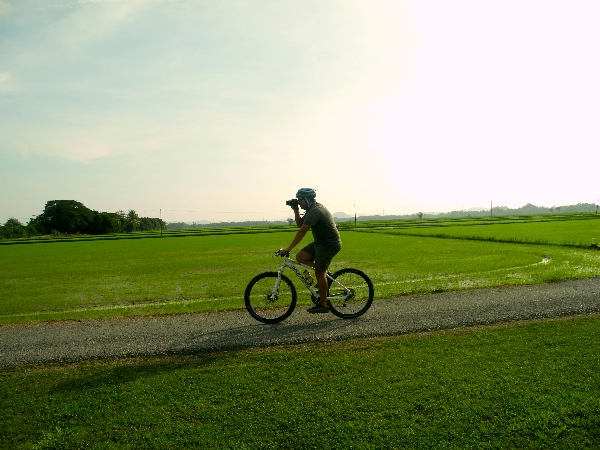

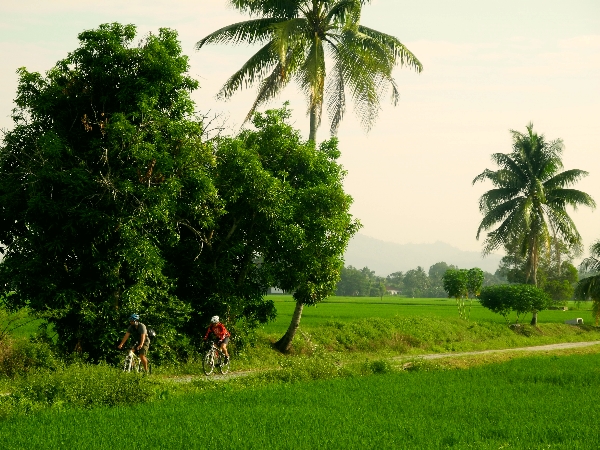
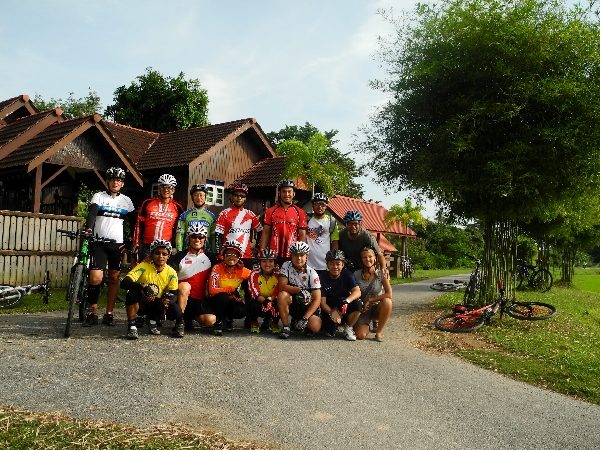
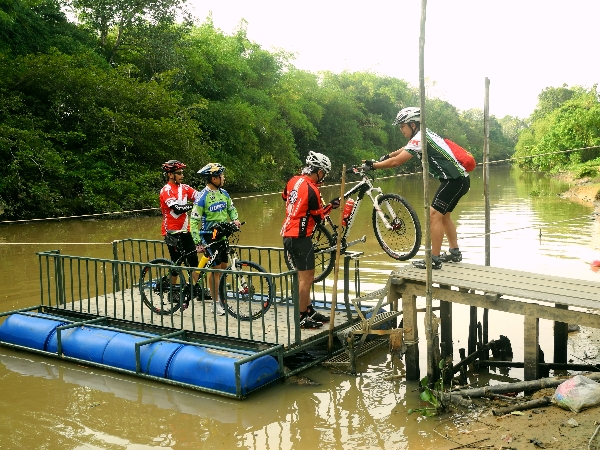
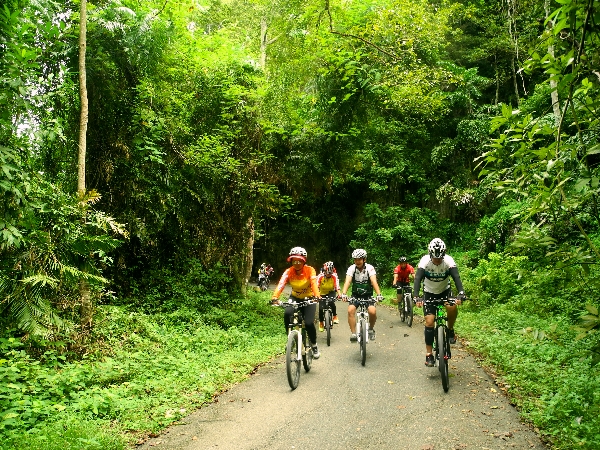
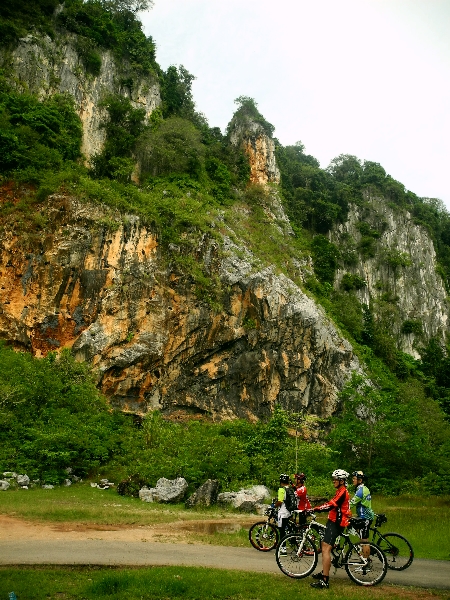
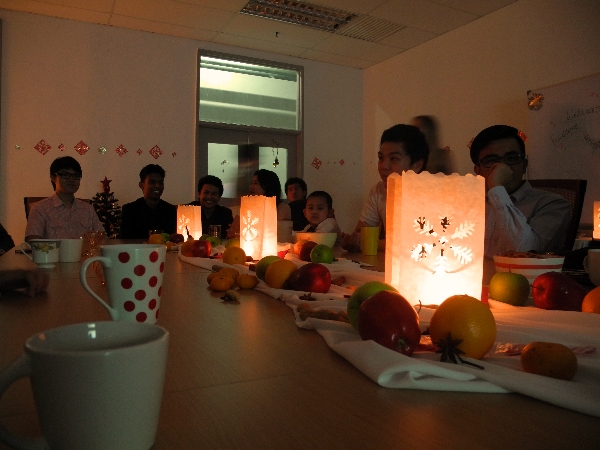
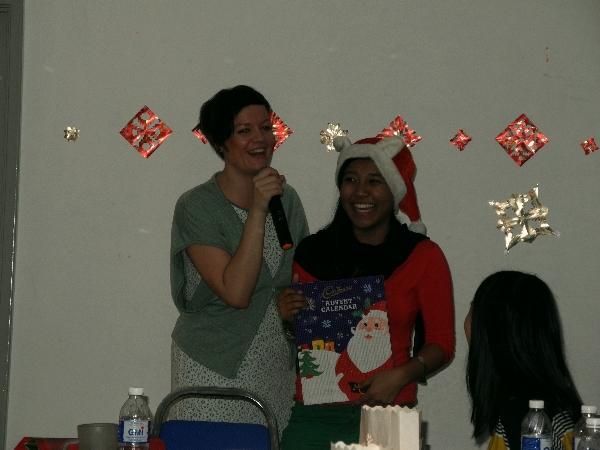
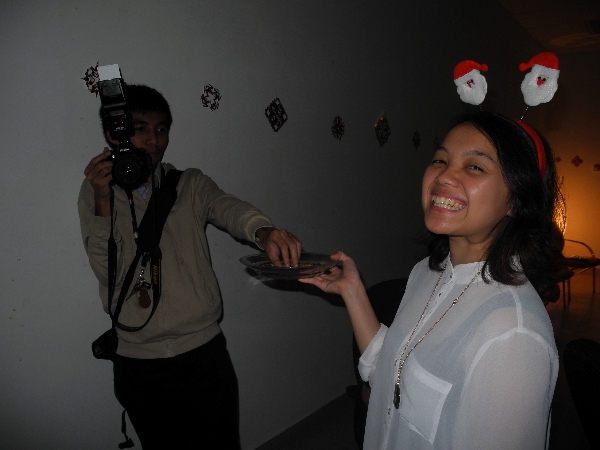
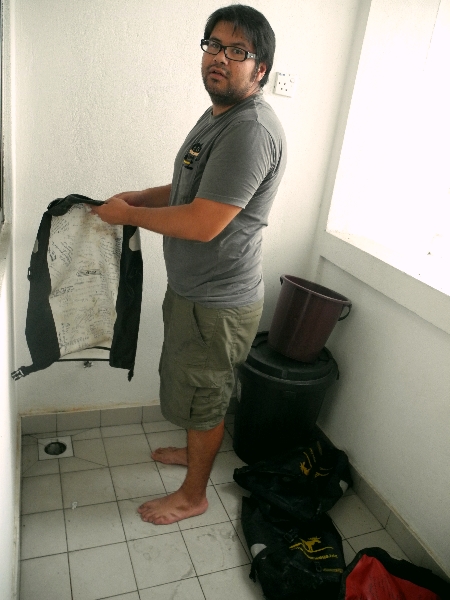
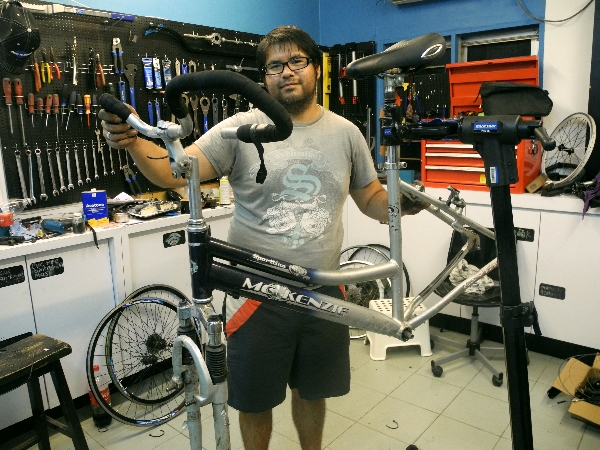
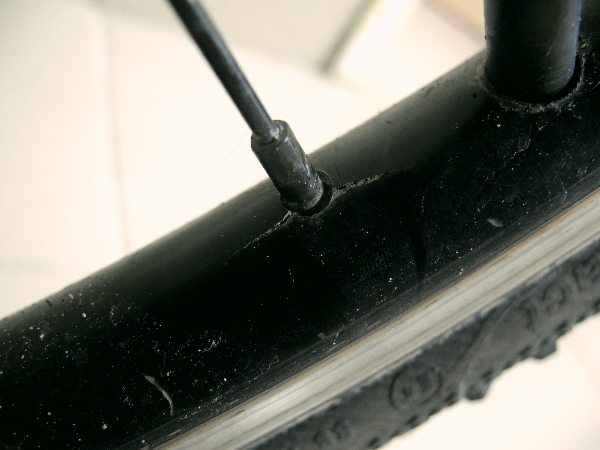
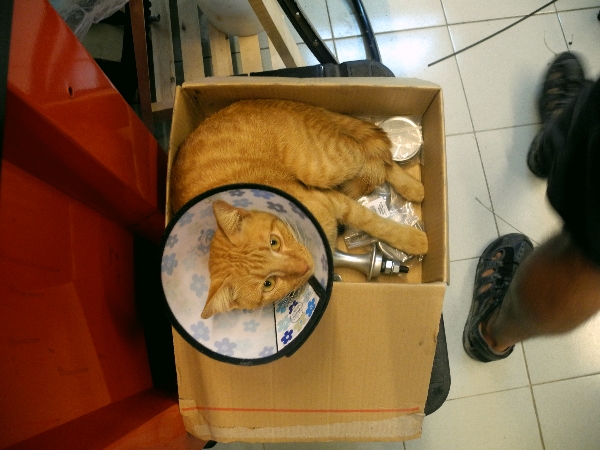
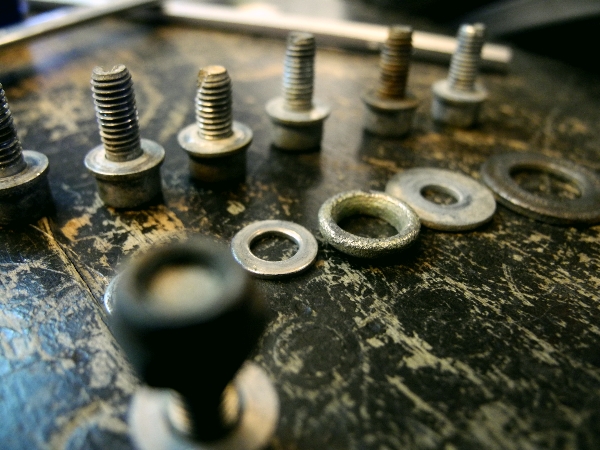
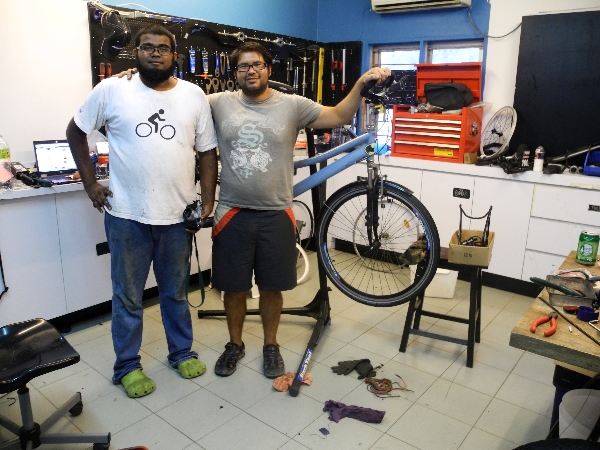
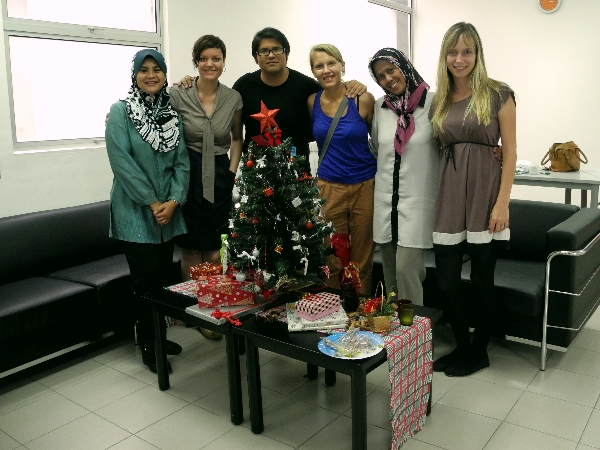
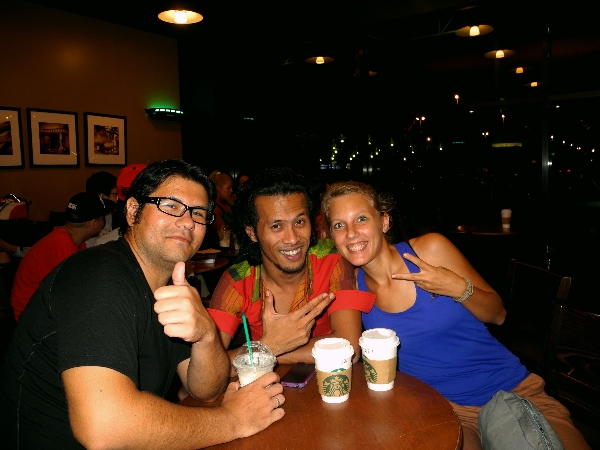
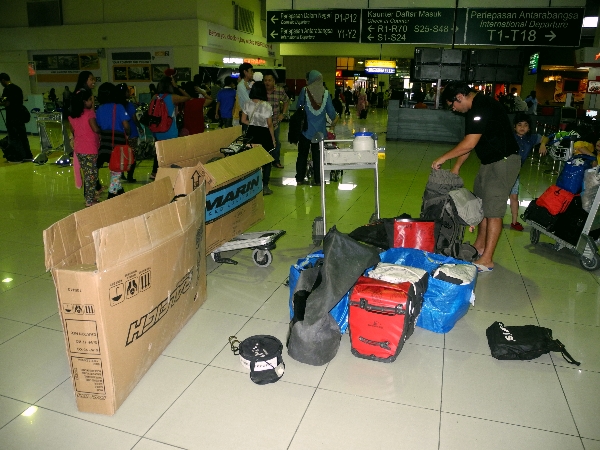
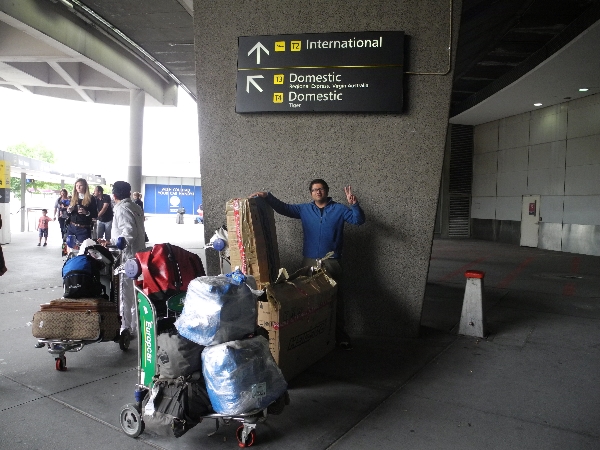
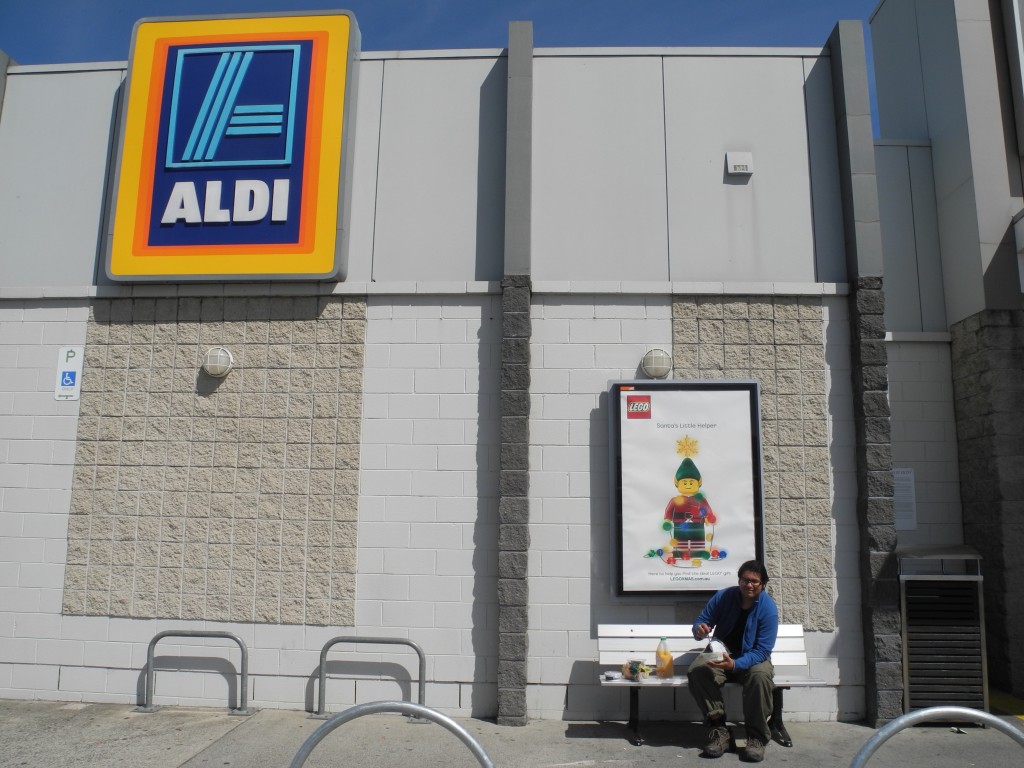
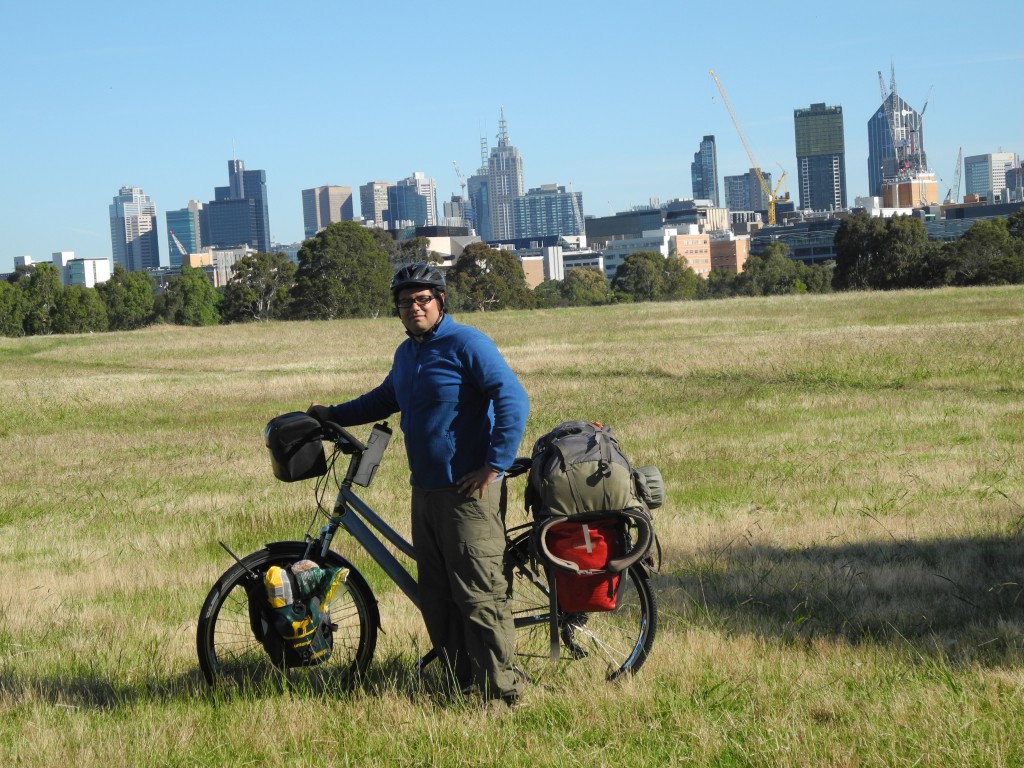






Recent Comments